Entering into the geological disposal process seems like a voyage into the unknown. The complexity and length of the process itself can be a barrier to entry for most communities. However, the recent Environmental Court Hearings in Sweden, and testimony from people involved in the Swedish process provide helpful guidance for UK communities contemplating the journey.
The Swedish Court Hearings are the culmination of a journey which has taken more than thirty years. The Environmental Court didn’t even exist when the municipality of Östhammar first put itself forward for consideration to host Sweden’s geological disposal facility (GDF). And much else has changed over the period: from the people who now live in Östhammar; to the state of scientific knowledge; to the public’s expectation of, and the laws governing, protection of the environment.
So how do the Environmental Court Hearings and the experience of those involved in the Swedish GDF process help UK communities begin to understand the journey ahead of them?
Firstly, the Court Hearings provide a clear ‘destination point’. The voyage is not into the unknown. After three decades of geological analysis, scientific data gathering, developing technical plans, environmental impact assessments, and dealing with community concerns and aspirations, all of the information is being independently reviewed before Sweden can move on to the next stage of the process – securing local community consent.
The Swedish GDF legal process is of course different to the UK, but the underlying principles are the same. At some point in the future, all of the information will have to be reviewed before a UK community is asked to make an informed decision on whether it wants to proceed. And a community can walk away, without any obligation, at any stage before this point.
Secondly, the experience of those who’ve long participated in the Swedish GDF process offers insight and advice on the journey for those in Britain following their path. It is the testimony of ordinary people tackling an extraordinary issue. Residents, local politicians, environmentalists, and the industry offer their thoughts below. Common themes appear: the need to build trust; an ever-changing world; the importance of openness and honesty; satisfactorily answering every technical and community question before moving to the next stage.
The Mayor
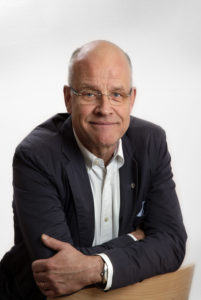
First elected to the local council twenty years ago, Jacob Spangenberg has been Mayor of Östhammar since 2006. Over that time he estimates half the population has changed through death, birth and migration, and notes that very few elected councillors remain from when Östhammar first entered into the GDF process.
“Retaining awareness in the community has not been easy”, he says. “There are long periods, when research and analysis is taking place, when there is little to talk about. Three-year gaps between updates on the project’s progress were the norm.”
But he praises the work of the Regulators and SKB (the Swedish GDF developer) in earning the community’s trust and helping to sustain the community’s engagement with the process, saying: “The Regulators provided neutral advice and information, and took time to regularly speak with community representatives. SKB learned lessons about listening to community concerns, and actively engaged with environmentalists and other opponents, treating their worries with respect.”
Honesty and openness were fundamental to sustaining community support. Spangenberg says everyone knew where everyone stood, and that even if you disagreed there was never any feeling of hidden agendas. He sums up his advice to others: “ask every question because nothing can happen until every question you have asked has been answered to your satisfaction.”
The Resident 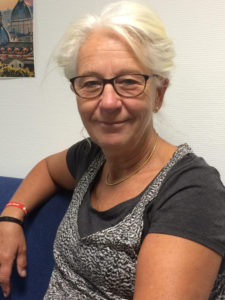
The GDF process in Östhammar has spanned Birgitta Söderberg’s teaching career. When it started she was a young teacher who held strong anti-nuclear opinions. But as she progressed to being Headteacher, and now advising the council on future education services, she says the honesty of the discussions now mean she believes the facility can be built safely and contribute to Östhammar’s community growth and development.
“Chernobyl was a defining moment. We were very affected, even having to ban outside picnics that summer. But it prompted a debate in schools which started to change opinions. If we have waste, we need to keep it safe. Though we were clear from the start, this should only be Sweden’s waste, not anybody else’s.”
Critical to building her trust and providing reassurance has been the honesty of all involved, even shaping how she votes at election time: “People increasingly vote for personality over political party. How someone managed questions about the GDF issue helped determine whether I trusted and respected them.”
Looking ahead to the future Söderberg believes the GDF will play a significant role in helping support expansion of educational provision in Östhammar: “More young people are staying in Östhammar because they can get the qualifications they need, and increasingly there is skilled work available locally. Better educational services will also make it easier to attract inward investment and skilled workers from outside.”
The Environmentalist 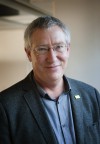
Johan Swahn still has major reservations about the safety of the proposed GDF, but recognises that the process for deciding whether to proceed has been fair, with everyone afforded the opportunity to express their concerns.
Swahn leads MKG, an NGO focused solely on radioactive waste, which is publicly-funded to ensure there is an independent community voice in the GDF process. MKG still has major concerns about the long-term safety of copper canisters and questions their reliability to isolate waste for over 100,000 years. The organisation has successfully shaped the debate and influenced how the process has evolved, with Swahn mentioning community concerns about nature: “SKB were initially focused purely on geology and nuclear waste safety, with no regard to habitat and species protection. This was an issue of great local importance, and we ensured it became integral to the wider GDF process.”
During the decades since the process in Östhammar started, Swahn points out that national environmental protection attitudes, expectations and legislation changed significantly. He was initially concerned that the Environmental Court might be shackled by other regulators, and be a mere rubber stamp for the GDF. However, experience has proved otherwise: “The Court has not only proved its technical competence, but has challenged the regulators on their approach. The Hearings were extended, and the Court went out of its way to ensure every voice that wanted to speak was heard.”
In offering advice to other communities, Swahn also stresses that the process is not just about geology and safe storage of nuclear waste, but that broader community concerns need to be addressed: “The impact of construction vehicles on local roads, noise pollution, the transport of nuclear waste, as well as protecting the local wildlife and environment are all factors that need to be properly considered. It is important that ordinary day-to-day impacts on the lives of local people are taken into account as well as the long-term safety of the stored waste.”
The Industry Rep
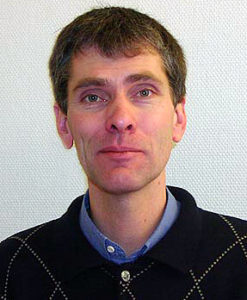
The long, slow GDF process has also had profound impacts on the developer. Apart from the natural turnover of staff any organisation would have over 30 years, Erik Setzman of SKB says planned change management has been critical to ensuring the company was responsive to the needs of local communities:
“At its core this is an engineering and nuclear waste management project, but that doesn’t mean we’ve always been led by engineers and nuclear experts. Developing relationships with communities has meant that over time we’ve had to prioritise resources and recruit senior managers with other skillsets.”
Setzman says SKB learned from early mistakes: “It is important to give communities access to experts. But not every expert should be exposed to a community. It takes particular skill not to come over as arrogant. Building trust requires listening, and then responding sympathetically to community concerns. Even if the issue seemed tangential to the core project, if it concerned the local community, the issue had to be dealt with.”
The project also survived the decades, according to Setzman, because there was a stable long-term national political commitment and financial platform to support community engagement and the necessary detailed technical analysis of the proposed site. He notes that at the recent Court Hearings, no new issues or questions were raised: “It is not surprising that no new issues arose. We’ve had over thirty years of open dialogue and analysis. Everything that needed to be asked had been answered. But it was only at this point that you could start seeking the necessary permissions to proceed to construction.”
Another Resident: The Urban Planner ![]()
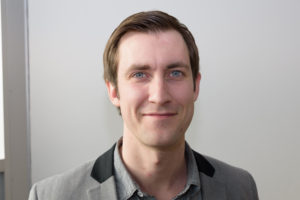
Torsten Blomé has only recently moved his young family to Östhammar. He knew about the GDF, and it was one of the factors that made the move exciting. Although he has not personally participated in a process which started before he was born, his new job depends on him understanding how Östhammar has changed over the past decades as he helps plan for its future.
Historically Östhammar was an isolated rural community, with educational, employment and wealth indicators below the Swedish average. That has changed. The Forsmark nuclear plant and other factors have contributed, but even the possibility of hosting the GDF has also given the community leverage to secure important infrastructure investment, as Blomé notes:
“The new Route288 has improved road connectivity with Stockholm, opening up new economic opportunities. Not only does it support the growth in tourism – about half the houses in Östhammar are now summer homes owned by people from Stockholm and elsewhere – but we are also diversifying the local economy and attracting interest from overseas investors.”
Such growth has increased land and property values, but with an expanding and increasingly skilled and better-paid community (unemployment is now half the Swedish national average) Blomé is confident about the future: “Increasing revenues will allow us to invest in a range of public services, particularly in education, so that we can create a community which attracts, retains and sustains people and high-skilled, better paid jobs.”
UK communities contemplating a GDF journey can turn to friendly and informed independent sources for advice on the voyage ahead. These ‘experts’ need not be scientists or consultants, they could just be ordinary people like yourselves.
